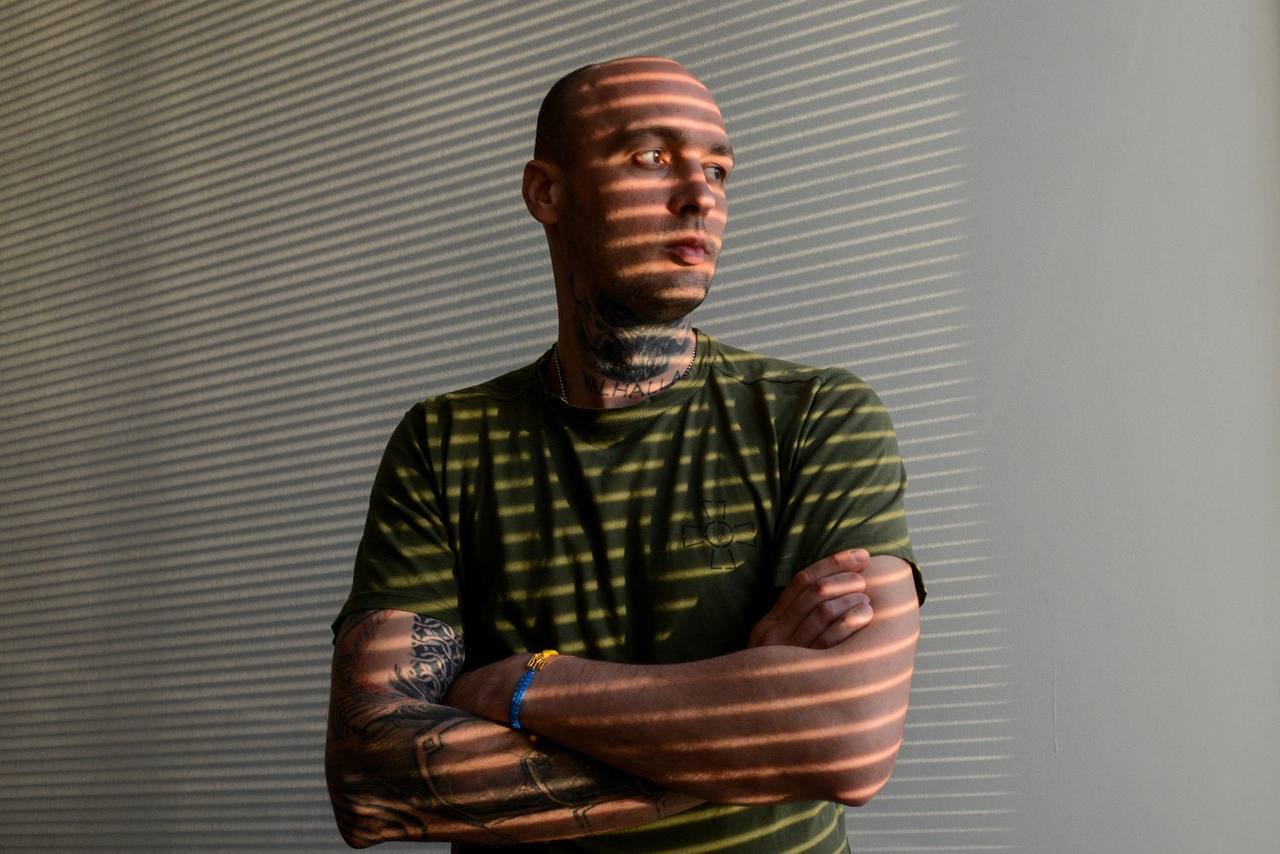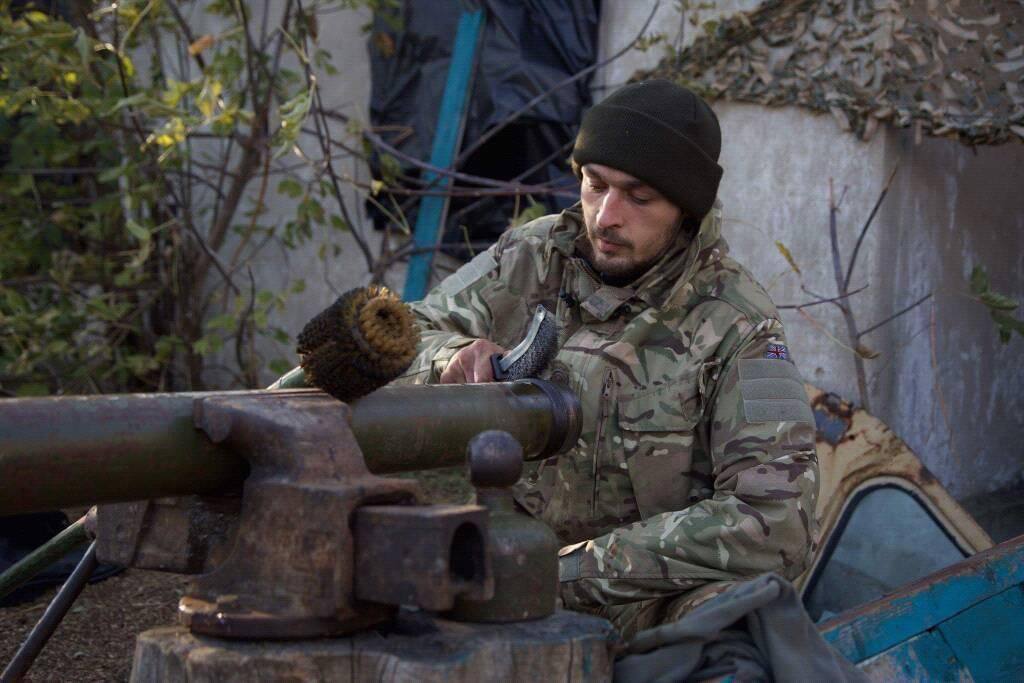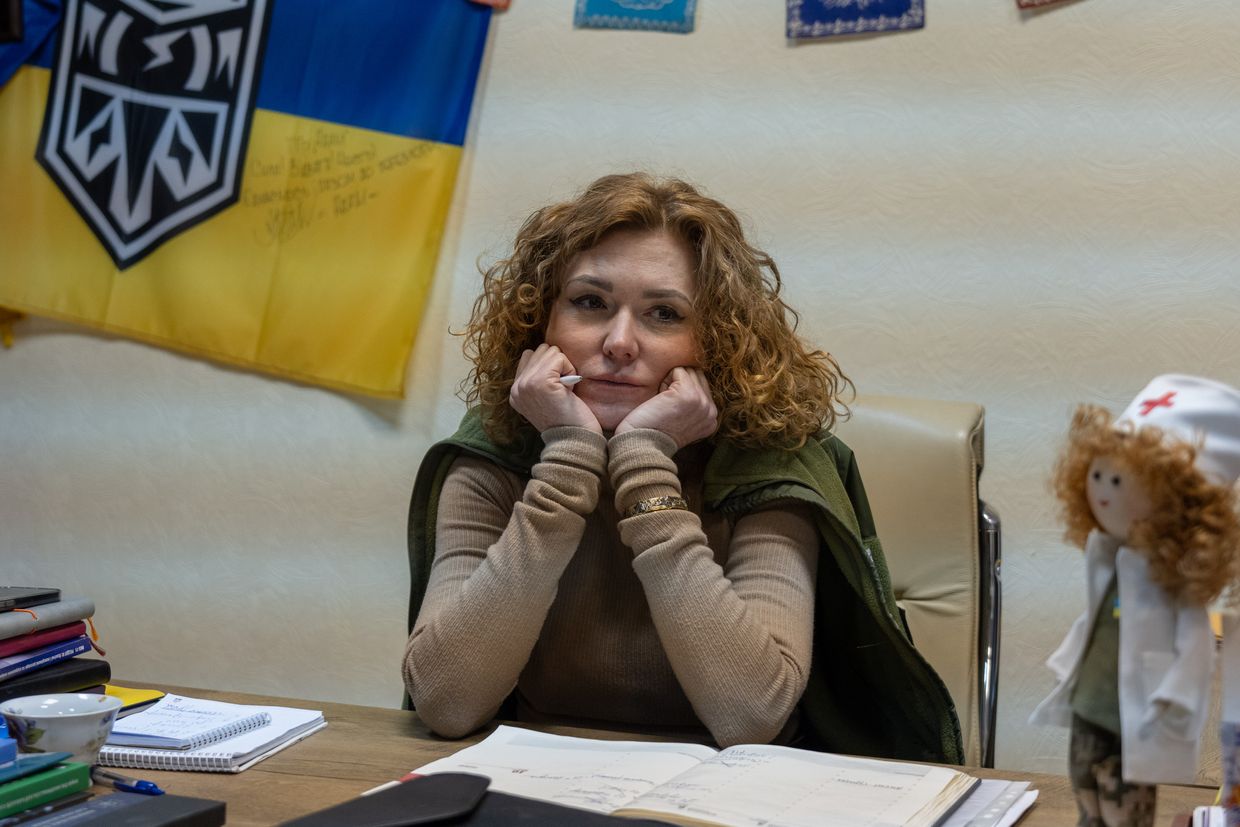There was nothing extraordinary about the mission until combat medic Olena found herself frozen in fear.
The situation wasn’t particularly dangerous, but she couldn’t bring herself to do her job as her fellow soldiers were getting wounded.
"I found myself trapped in the dugout corner, trembling like a frightened mouse," Olena told the Kyiv Independent. "Even as my comrades fell wounded, I begged someone else to bring them to me."
"It felt as though I'd never regain my composure... When you’re in danger, you either fight or run. Yet, there I stood, paralyzed... powerless to act."
Just before, Olena’s unit had come under heavy fire near the front-line town of Robotyne, in the midst of the Ukrainian counteroffensive in the summer of 2023. The attack claimed the lives of several fellow soldiers and left others injured before Olena’s eyes.
While never formally diagnosed with post-traumatic stress disorder (PTSD), a devastating mental health condition particularly common among combatants, Olena believes that she was exhibiting its symptoms during that mission.
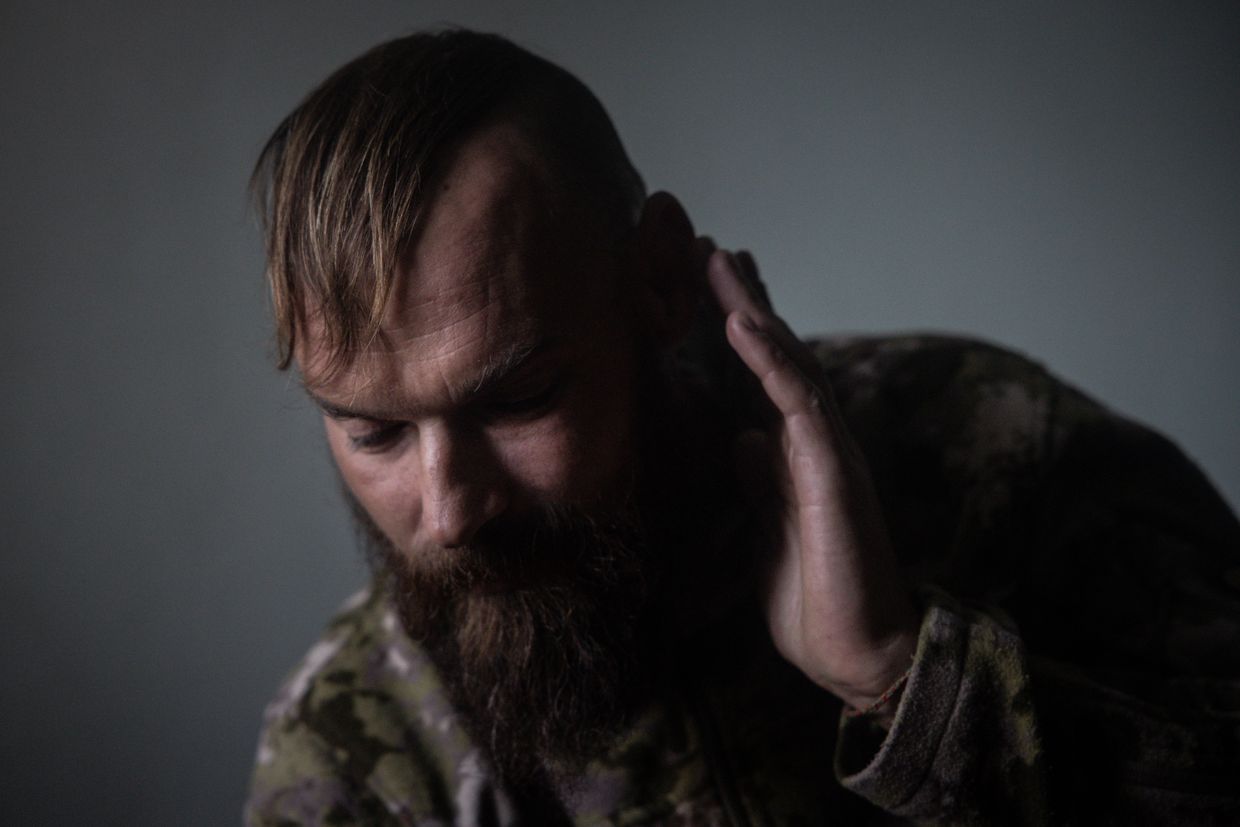
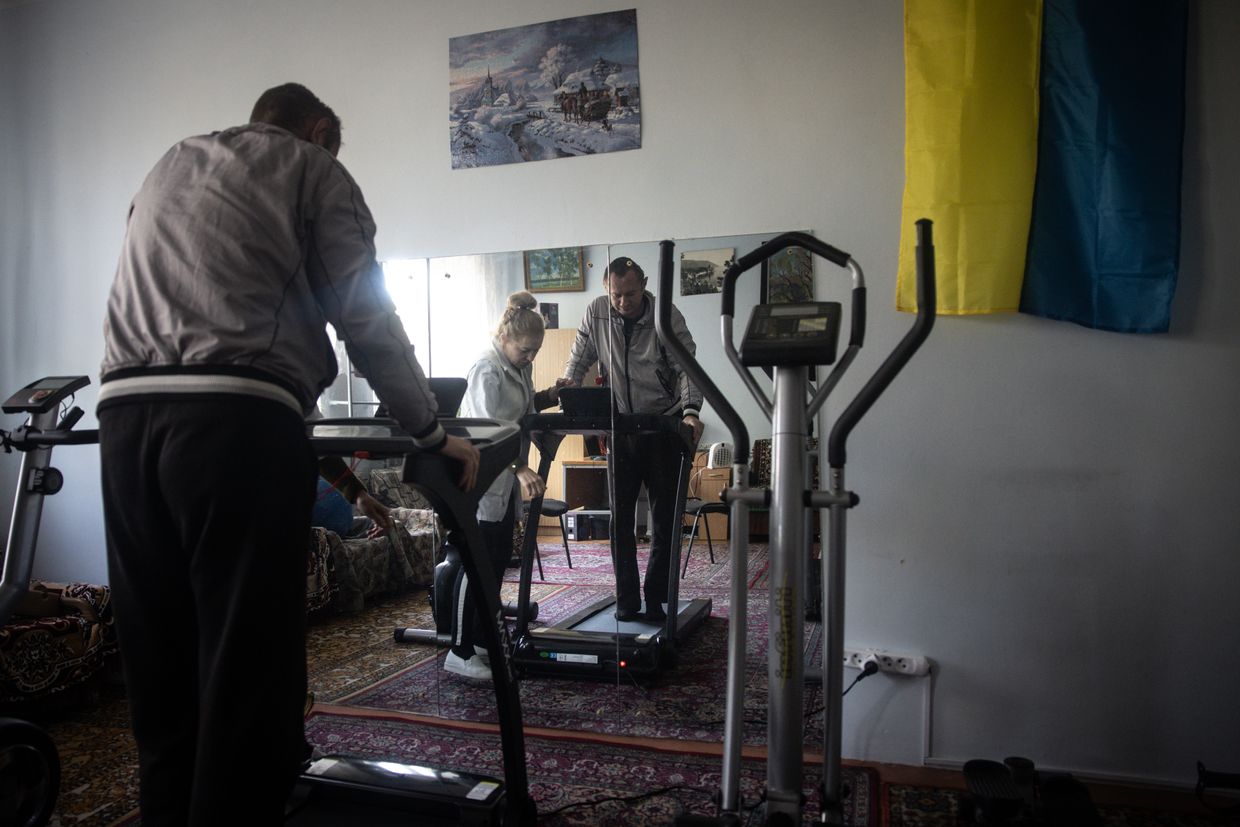
She had dealt with combat-related trauma before. After fighting against the initial Russian invasion that started in 2014 and surviving the brutal Battle of Debaltseve in 2015, Olena ended up in psychological rehab.
In the summer of 2023, amid Ukraine’s major counteroffensive, getting permission from the commander to leave for mental health treatment was such a struggle that Olena had to arrange a transfer to another brigade to make it happen. Olena asked to be identified only by her first name because she was not authorized to speak with the press.
"It was impossible (to be allowed to leave for rehabilitation)," Olena recalled. "There aren’t enough people (in the military)."
The coping skills she gained in years of psychotherapy have lent Olena some stability. But she is worried about her fate and that of her fellow soldiers as ongoing troop shortages and the high intensity of combat undermine their mental health.
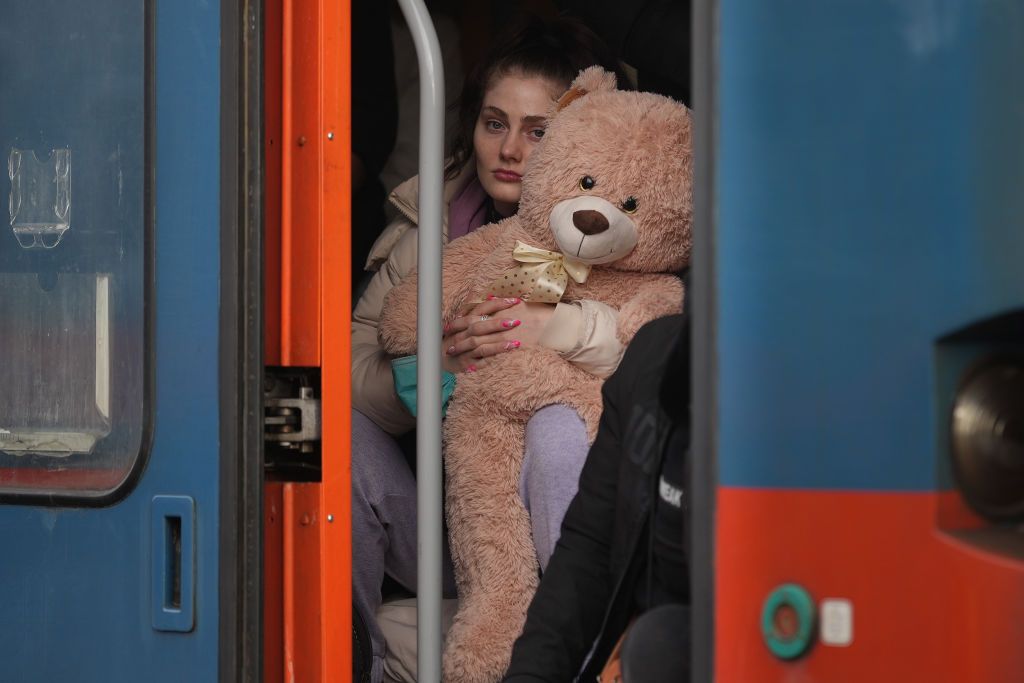
"Almost everyone says the same thing – I'm tired, but I have to (go on)," said Olena. "I want to receive (medical) treatment, but if I go, there’s no one to replace me. I want to live, but this is war."
Kyiv has updated the legal framework to ramp up mobilization this year as thousands of outgunned and outnumbered Ukrainian soldiers have been fighting Russian troops tirelessly for months without leave.
Heavy fighting has taken a high toll on soldiers’ physical health, but the unseen effects of the war on their mental health could mean a PTSD crisis is looming for the country as well.
What is PTSD?
PTSD can be caused by a traumatic event, when a person experiences or witnesses something horrific, such as combat, a natural disaster, a car crash, or violence.
Key symptoms include intrusive memories (flashbacks), hypervigilance, negative thoughts, and avoidance of anything that reminds a person of the traumatic event. PTSD can develop from a month to years after the event that triggers it and often comes together with anxiety disorders, panic attacks, addictions, and other conditions.
Stanislav Hibadulin, a Ukrainian war veteran from Moldova who was diagnosed with PTSD in 2020, says that though he physically returned from the war, mentally, it felt like he still was there.
"Thoughts of the war consumed me... thoughts about Ilia (a friend killed in combat)... that I have to take revenge for his death, die in battle," Hibadulin told the Kyiv Independent.
The intrusive, unreasonable thoughts about the constant danger were paired with depression and apathy. "I couldn't even get out of bed to take out the trash, buy groceries, or cook something… I couldn’t read or remember information... I just didn't feel alive."
Hibadulin said his condition impeded his relationships and education, and that the only treatment that proved effective for him was psychedelic-assisted psychotherapy – a controversial method to cure PTSD illegal in Ukraine but used to a limited extent in some Western countries.
Millions affected?
There is currently no publicly available data on how many Ukrainian soldiers and veterans suffer from PTSD. The Health Ministry reported a sharp increase in diagnoses from 3,167 in 2021 to 12,494 in 2023, but it's unclear if military personnel are included.
Experts reckon the prevalence of PTSD in soldiers and veterans is around 30%. The occurrence of the condition is influenced by deployment location, gender, combat exposure, and other factors.

The Health Ministry estimates that 1.8 million people among Ukraine's military personnel and veterans may require psychological support.
But there are concerns the country won’t be able to provide this level of assistance: An audit carried out by the Ukrainian NGO Barrier-Free concluded last year that although many programs and services have been created in Ukraine, they have still not been coordinated into an effective mental health care system.
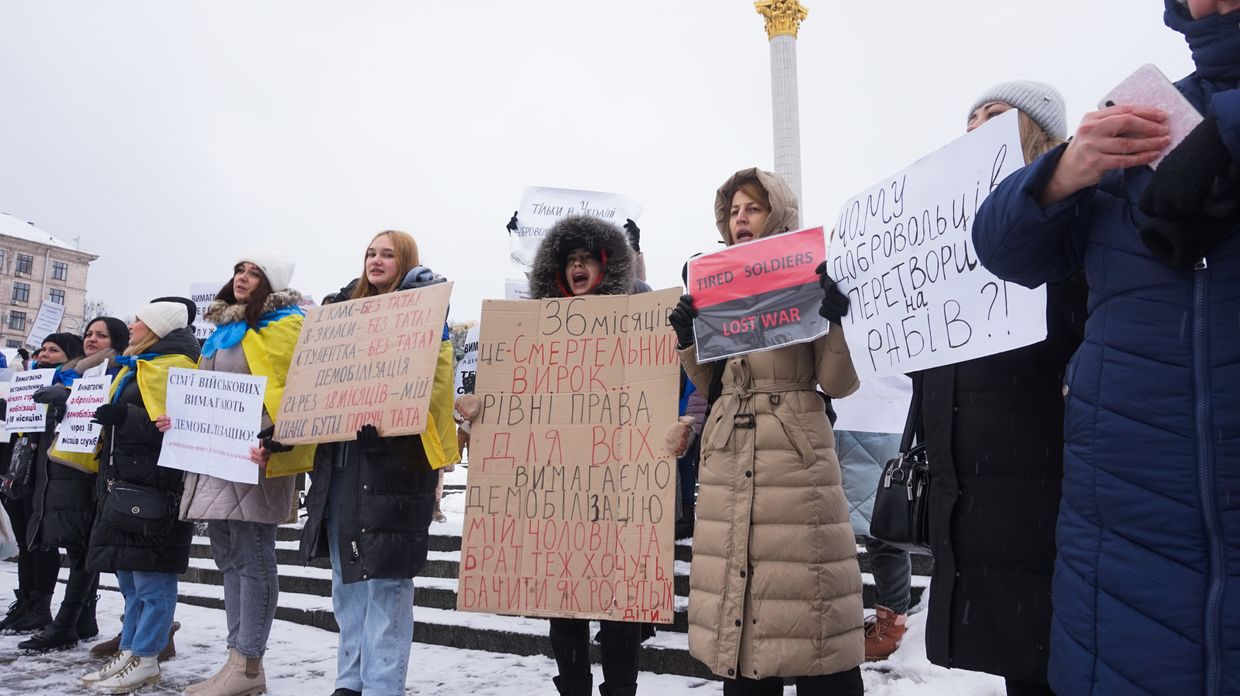
Soldiers and war veterans in Ukraine can seek help from a handful of psychological rehabilitation centers subordinate to Ukraine's Ministry for Veterans Affairs and the Health Ministry, most located in Kyiv Oblast, or go to their local state-funded and private clinics.
However, according to the audit results, neither the Veterans Affairs nor the Health Ministry have sufficient resources to meet rapidly increasing demand.
Oleksii Kruhliachenko, a Ukrainian psychiatrist and psychologist who has a private practice, told the Kyiv Independent that among the biggest problems is a shortage of qualified specialists trained in evidence-based PTSD treatment. Low salaries from the state discourage psychiatrists from offering free services to veterans, Kruhliachenko said.
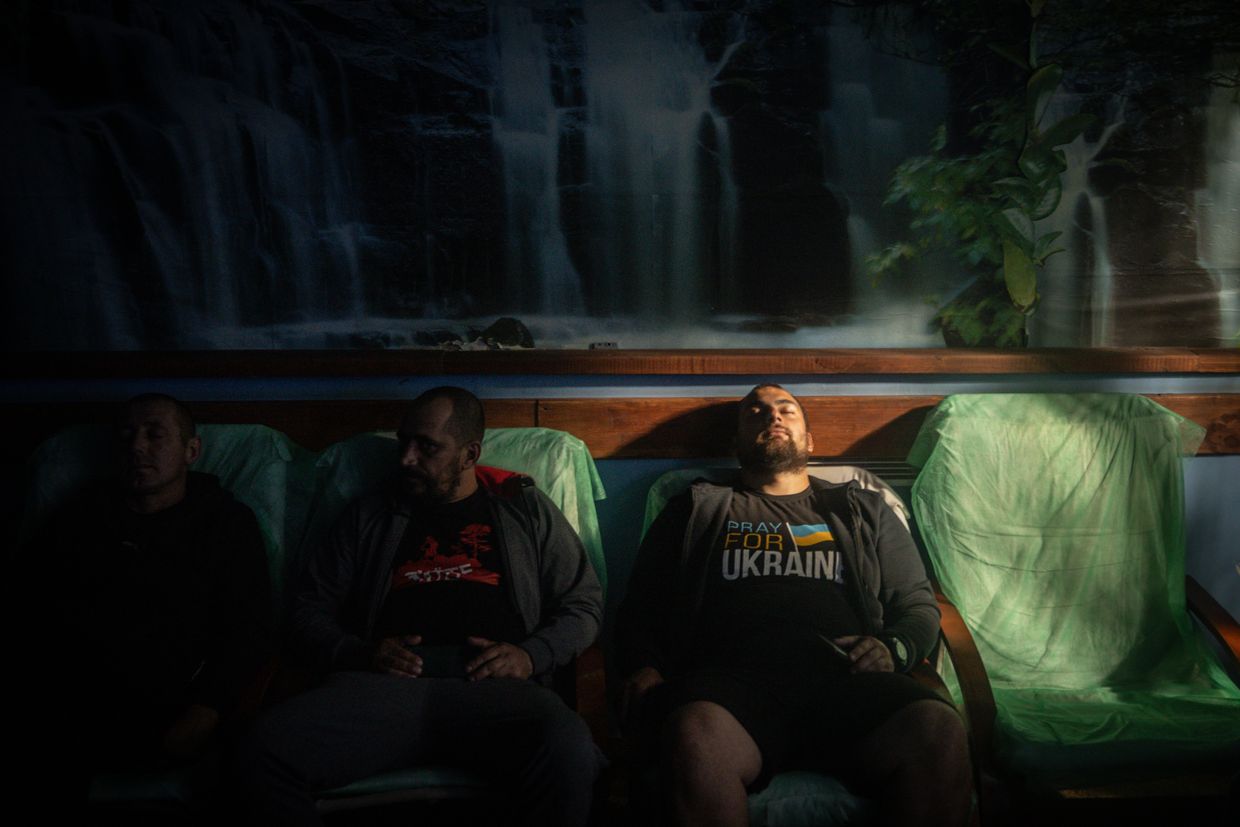
There are also dozens of NGOs and charity funds, such as Veteran Hub, helping soldiers and veterans deal with PTSD and other mental health problems. They educate people about the condition and assist them in finding a good therapist, or provide free therapy sessions themselves.
Cycle of trauma
As many Ukrainian volunteer fighters and service members who participated in Kyiv’s military campaign against the initial Russian invasion returned to war in 2022, organizations that were initially focused on veterans’ support shifted their attention to aiding active soldiers.
Among them is Forest Glade, Ukraine's first state-owned medical center specializing in treating psychotrauma, located in a Kyiv suburb. Forest Glade is currently treating over 200 patients, most of whom are active service members sent for approximately three weeks of treatment, the center’s head, Kseniia Voznitsyna, told the Kyiv Independent.
Since antidepressants and therapy usually prescribed for PTSD require at least several months to yield significant results, affected soldiers return to duty, some to the front lines, before their complete recovery. There, they may get traumatized again.
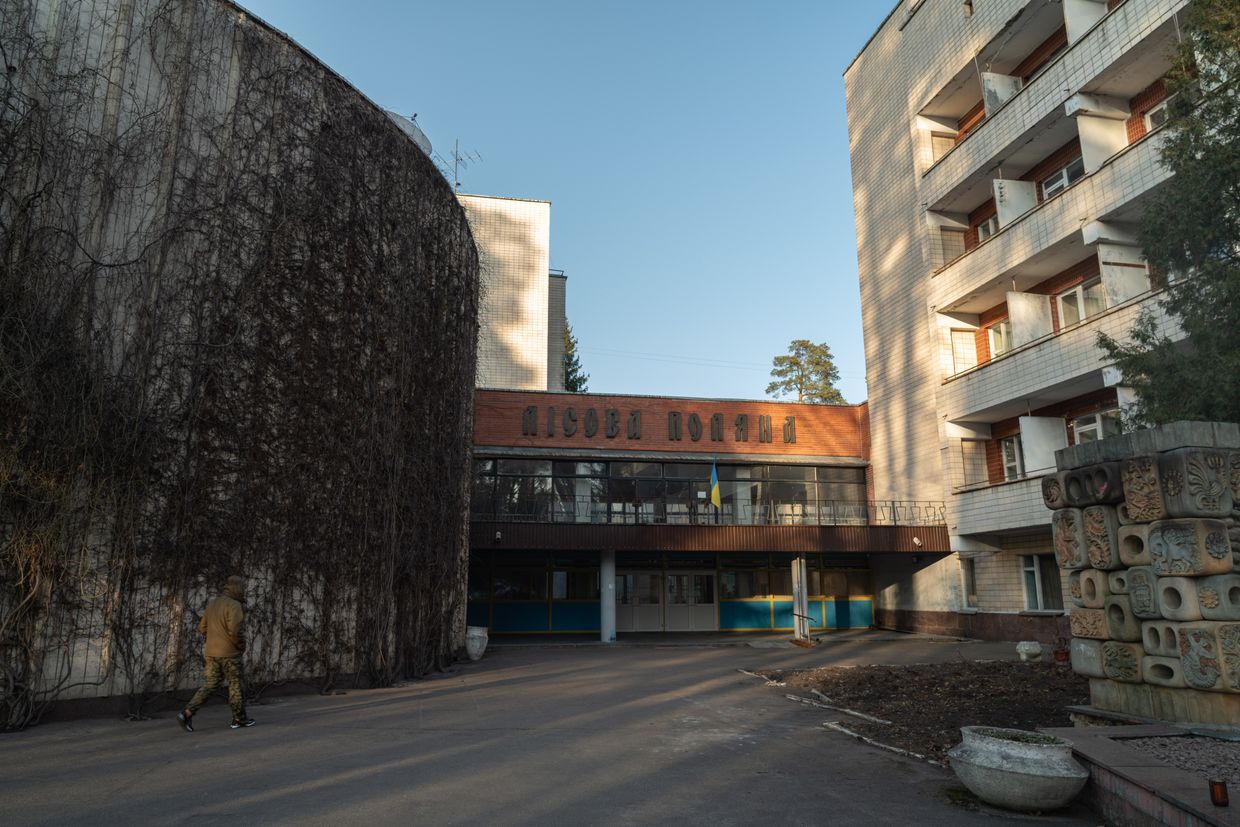
This cycle of trauma exposure puts them at risk of developing complex PTSD (CPTSD), a more challenging and time-consuming condition to address, psychologist Tetiana Sirenko, Voznitsyna’s deputy, told the Kyiv Independent.
The consequences of untreated PTSD can be dire, according to experts.
"After some time, PTSD turns into depression, followed by addiction, suicidal thoughts, or panic attacks," said Hanna Dudnyk, a Ukrainian psychologist whose work focuses on trauma-related disorders.
“A person loses joy in life, merely existing, and may exhibit aggressive or manic behavior.”
Recent studies on soldiers and veterans in the U.K., Croatia, and Australia showed that CPTSD is actually a more common and debilitating disorder than PTSD, and it more often leads to severe functional impairment.
Military support
To reduce the risks of PTSD and other trauma-related disorders among service members, having a well-organized system of psychological support within the military is crucial.
Military psychologists play a vital role in this system. They examine new recruits, provide support before, during, and after missions, and work individually with soldiers. If they identify a service member in distress, they can recommend time for recovery or refer them to a military hospital.
Viktoriia Bilous, a senior officer in a Ukrainian brigade's department of moral and psychological support, said that while her commander has so far been supportive of these mental health recommendations, shortages of military personnel, particularly highly qualified professionals, may mean support is lacking in other brigades.
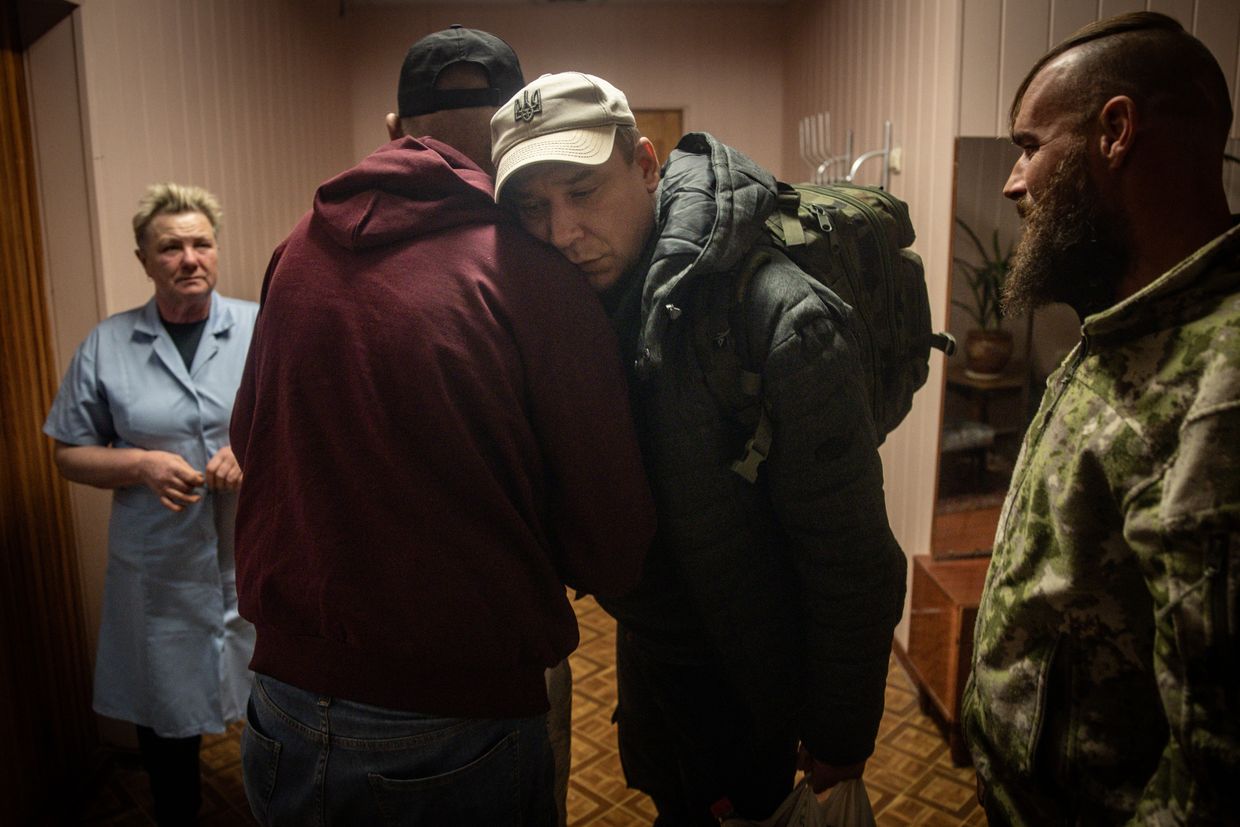
Still, according to Bilous, there’s a growing recognition of the importance of soldiers’ mental health within the military leadership, and the number of military psychologists in Ukraine’s Armed Forces is steadily increasing.
But there are still too few experienced mental health specialists in the army. A study presented by the Barrier-Free NGO in February 2023 showed that there was one psychologist for every 400–500 service members in Ukraine’s Armed Forces, compared to one per 70-90 soldiers in the Israeli army.
Besides having a huge workload, Ukrainian military psychologists have trouble making fighters open up to them. A lack of public understanding about PTSD and widespread societal stigma surrounding mental health issues, particularly among men, means many soldiers and veterans may refuse to address their struggles.
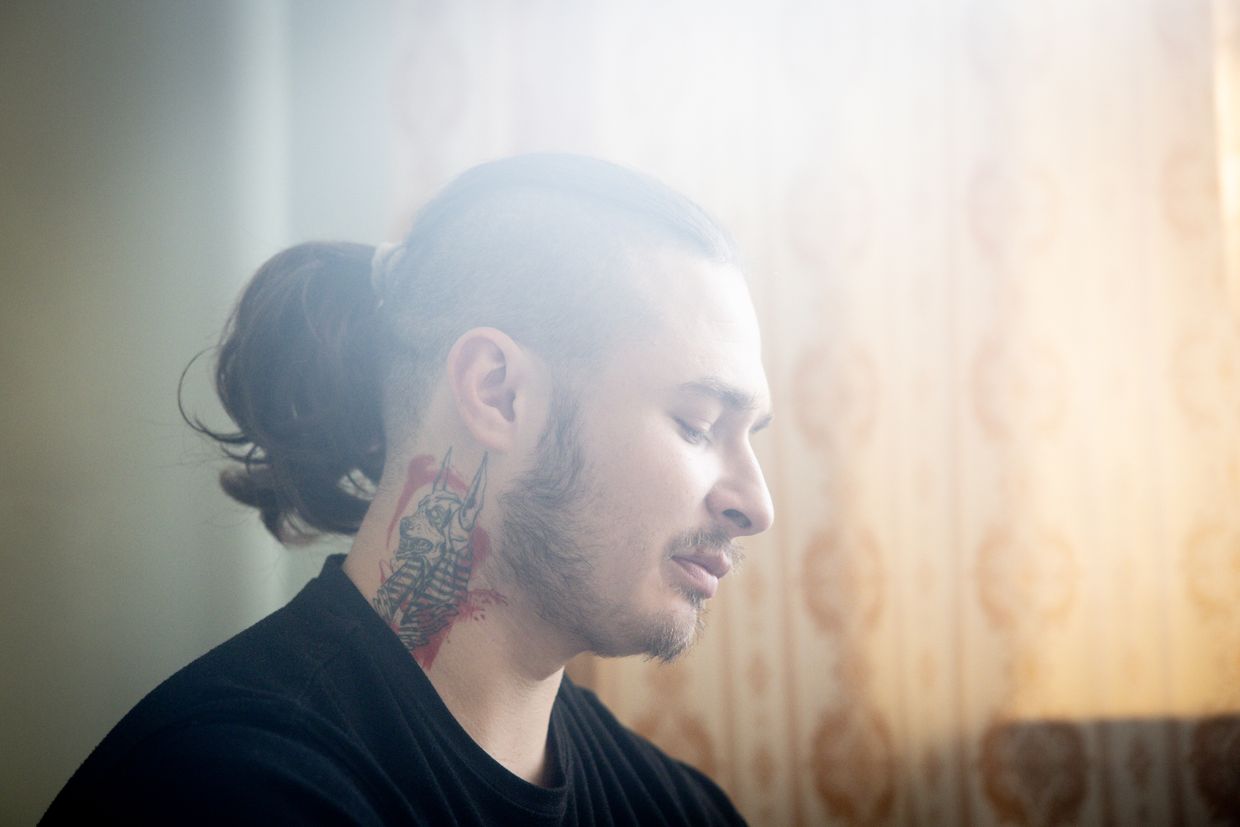
However, the main challenge in safeguarding the mental health of thousands of Ukrainian soldiers and veterans is Russia's ongoing brutal war against the country, said Svitlana Kutsenko, the head of the department of psychological rehabilitation at Lviv-based Superhumans Center.
"The main problem is that the war doesn’t end," Kutsenko said.
"(Imagine that) you’re in a rehabilitation center, and it is being shelled. Is this really rehabilitation? We’ll be able to talk about full rehabilitation only after the war is over."
"We just do what we can in these circumstances."
Note from the author:
This is Dinara Khalilova, I wrote this piece for you. We at the Kyiv Independent believe it's crucial to cover the realities in which thousands of Ukrainian soldiers have been living for over two years. They are the main reason we are still alive, so the least we can do is tell their stories. If you want to read more of those, please consider becoming a member of the Kyiv Independent community.





